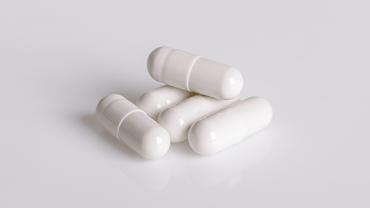
A recent systematic review published this June in the Journal of Applied Microbiology investigated the overall efficacy of probiotics, prebiotics, and the combination of the two (i.e., synbiotics) in treating inflammatory bowel disease (IBD).
Inflammatory bowel disease includes both Crohn’s disease (CD) and ulcerative colitis (UC), which are inflammatory conditions of the gastrointestinal (GI) tract caused by the overactive response of the mucosal immune system to food, environmental, or pathogenic antigens over a long period of time. Oftentimes, this inflammation progressively leads to severe abdominal pain, bloody stools, fatigue, weight loss, malnutrition, IBS symptoms, and even certain cancers (e.g., colon cancer).
Previous research has identified that the gut microbiome is much more stable in healthy individuals than in those who suffer from IBD. In patients with IBD, there are chemical and molecular events that cause dramatic shifts in their microbiome that can exacerbate disease activity. Previous studies showed that prebiotics and their metabolic end-products (short-chain fatty acids) have favorable effects in the remission of IBD.
Prebiotics are naturally found in the diet in many high-fiber carbohydrates, such as onions, leeks, chicory root, garlic, Jerusalem artichokes, asparagus, cabbage, and certain legumes. Probiotics are live microorganisms that impart health benefits to the host and can be found in yogurt and other fermented foods, along with dietary supplements. Synbiotics are products that contain both prebiotics and probiotics in which the probiotic component helps beneficial microflora proliferate and the prebiotic component inhibits the growth of pathogenic bacteria. Research has shown that synbiotics “decrease the concentration of undesirable metabolites, including nitrosamines, inactivate carcinogens, and prevent constipation and diarrhea in the host.”
In the current systematic review, 21 clinical trials from 2009 to 2020 analyzed patients with IBD who were eligible for study inclusion. Of the 21 clinical trials, 19 analyzed the influence of probiotics, one examined the effects of synbiotics, and one assessed the effects of both probiotics and synbiotics on IBD treatment. The average daily probiotic dose across all 21 studies was 2.6 x 1013 colony forming units (CFUs); the most common strains used among the studies included Lactobacillus acidophilus, Brevibacterium breve, and Bifidobacterium longum. However, most studies used a combination of multi-strain probiotic bacteria, and a total of 31 species were used across the 21 trials.
The results significantly showed different outcomes in the studies comparing the effectiveness of probiotics versus a placebo in patients with active UC. In patients with CD, probiotics significantly decreased pro-inflammatory mediators interleukin (IL)-1 beta, tumor necrosis factor-alpha, and IL-8. Probiotics also improved overall induction of remission rates compared to a placebo. Among patients who used probiotics or a combination of probiotics and synbiotics, disease activity indices, histological scores, and the need for systemic steroids, hospitilization, and surgery were significantly reduced. The researchers concluded, “the use of probiotics as food supplements can induce anti-inflammatory reactions, balance the intestinal homeostasis, and induce remission in IBD,” however, larger well-designed clinical trials are needed to further investigate the role of probiotics in IBD.
A previous article demonstrated that dietary changes alone may lead to complete remission of IBD. Further research showed that fasting-mimicking diet cycles reduced systemic inflammation and lymphocyte counts in patients with IBD, suggesting a potential adjunctive therapy in helping mitigate disease pathology. Consuming probiotic-rich foods and prebiotic-rich foods may also support individuals with active IBD by promoting the growth of beneficial bacteria in the gut microbiome and possess anti-inflammatory properties for gut restoration.
Encouraging your patients with active IBD to supplement with high-dose probiotics along with prebiotics (such as xylooligosaccharide supplementation) is recommended to help manage IBD symptoms. Synbiotic supplementation may possibly induce IBD remission by supporting a normal inflammatory response in the GI tract and rebalancing microflora composition without the adverse effects or complications that may arise with conventional IBD treatment.
By Caitlin Higgins, MS, CNS, LDN